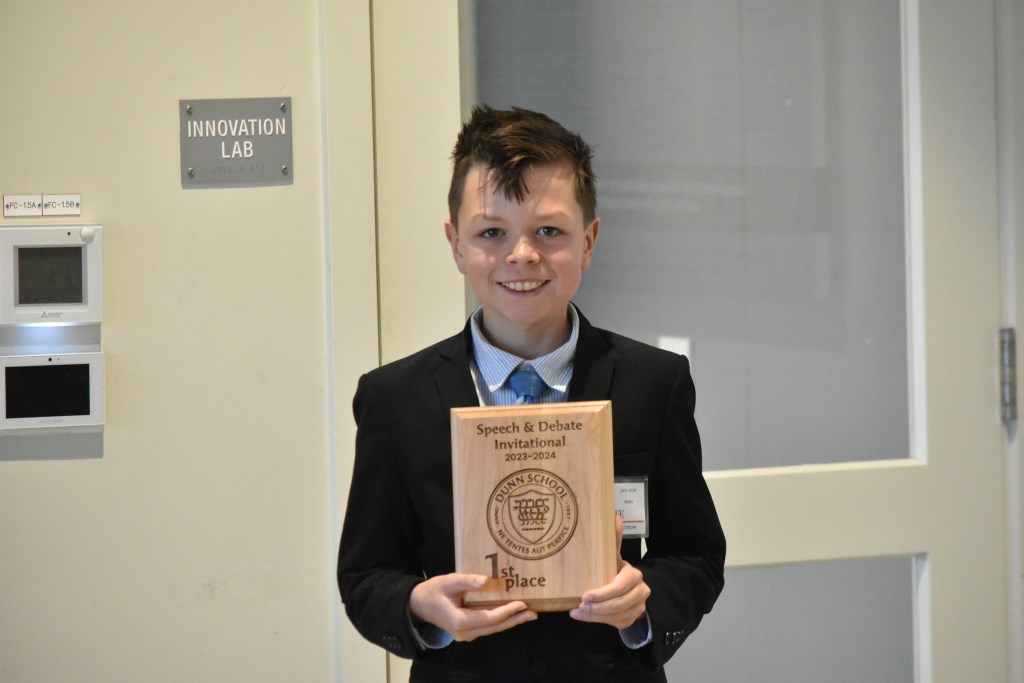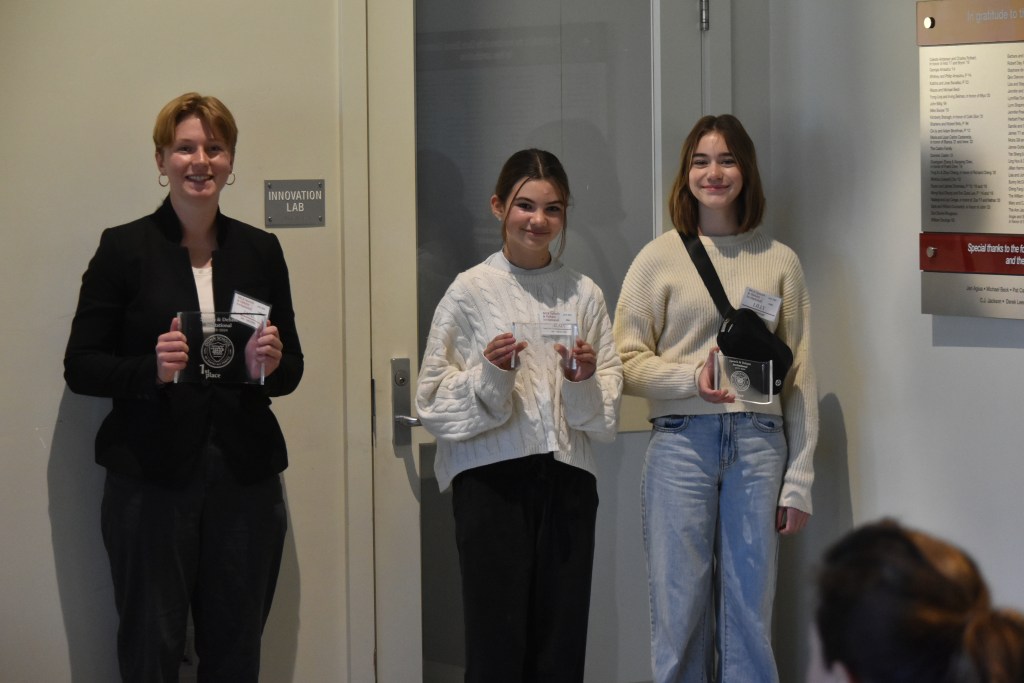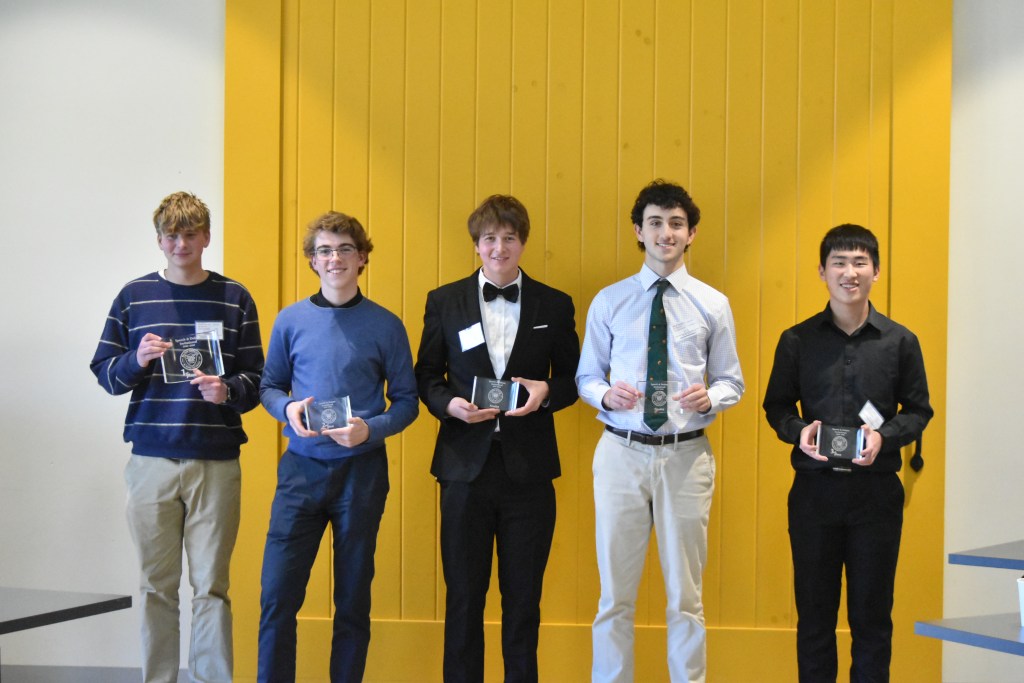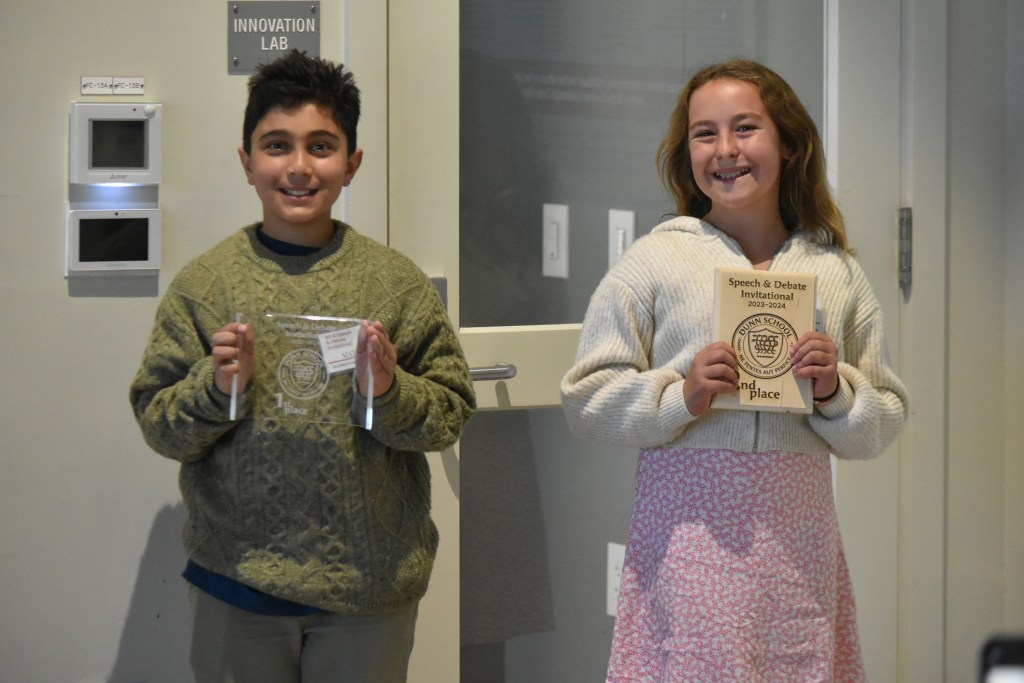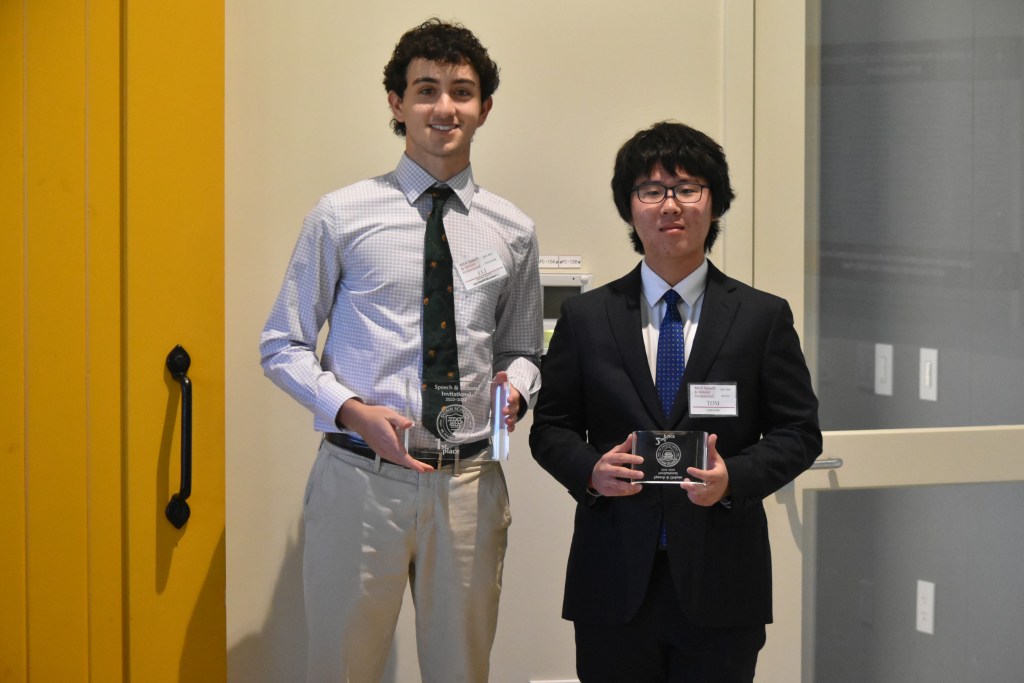Celebrating Dr. King’s Legacy with Speech and Debate Competition
Dunn School Hosts Second Annual Martin Luther King Jr. Invitational in Los Olivos

Celebrating the spirit and legacy of Dr. Martin Luther King’s work in the civil rights movement, Dunn School held its Second Annual Martin Luther King Jr. Invitational — a speech and debate competition open to all Central Coast and Santa Barbara County schools — over the weekend.
Dunn School Senior Alex Grenier earned first place in a field of 14 students in the Spontaneous Argumentation (SPAR) competition on Friday, and Dunn School Freshman Husna Balaven scored a first-place finish with the best high school interpretive speech on Saturday.
Including middle school winners, Dunn led the field with seven total medals. Thacher also had two first-place finishes in the high school division: Eli Bouganim’s speech won the Original Oratory category, and Ethan Smallwood placed first in the
Extemporaneous category. Cate School’s Andrew Sheshanoff just edged out Smallwood (2nd place) and Dos Pueblos’ Aaron Xie (3rd) in the Impromptu competition. Less than two points separated the Impromptu placewinners.
Other Cate School winners were Ben Elkin (2nd) in Extemporaneous, Kaitlyn Dai (2nd) in SPAR and Tree Payne (2nd) in Interpretive. Dos Pueblos’ Xie also placed third in Extemporaneous. Dunn senior Matthew Musson placed third in SPAR.
In the middle school division, Dunn 8th-grader Jacie Dingman was first in Original Oratory, followed by Dunn sixth graders Alaia Baillergeon (2nd) and Lily Rioux (3rd). Dunn 6th-grader Dante Scroggin was first in Interpretive.
The Family School in Los Olivos swept the Elementary School division with Matin Balaven taking first and Ella Sweeney taking second in Original Oratory and Miles Sgro placing first in Interpretative.
Thacher student Eli Bouganim shared his speech, which won the Original Oratory category, based on the theme of inclusion and community:
We all grew up with the idea of “stranger danger.” Trust me, I’m no stranger to that. In the fourth grade, my school brought in a “stranger danger” expert to teach us about how scary the outside world was. He came in with his boxing pad and boxing gloves, taught us to dodge, taught us to swing, and taught us how to avoid the everyday kidnappers he claimed we were going to run into in the day-to-day life of a kid in San Francisco. But the truth is, as someone who grew up taking public transportation, going to parks, and being in public, I had never once seen a kidnapper. That’s because just one percent of childhood kidnappings are by strangers. If anything, we should be worried about “neighbor danger,” not “stranger danger.” More than the boxing gear and scary equipment this man brought with him, he brought with him his terrifying rhetoric. By the end of his talk, there was not a dry eye in the house. And trust me, not in a touching way. This idea of stranger danger has irreparably damaged multiple generations. Because science shows us that talking to strangers makes you a better thinker, a better person, and a better friend.
I’ll start with something simple. This is something I did this morning, and I guarantee you’ve done sometime recently. And that’s ordering from a coffee shop. I believe that two kinds of people exist when it comes to ordering from coffee shops. The first is those who treat it as a transactional, efficient conversation where your job is to get in there, get your coffee, and get out. The second is the kind of person who strikes up a small, even meaningless, conversation with the barista, asking them how their day is going, and how long they’ve been making coffee. A 2013 study from the University of British Columbia found that those who engage in even a short conversation with their barista are not only happier but also have an improved sense of belonging. However, talking to a barista is a socially acceptable form of talking to strangers. What about when it’s awkward, or even socially rejected, to talk to those around you?
Take, for example, sitting in the park or walking on public transportation. The University of Chicago did a study where they found that 50 percent of people said that they believed that talking to people on public transportation was a social sin. But in reality, when these same people stepped onto public transportation and sparked a conversation with those sitting around them rather than burying their heads in their phones, they found that they were happier, less lonely, more empathetic, but most importantly, gained a sense of hope. No amount of medical intervention or therapy can give that to you. You might be thinking to yourself, “Well, those in the Midwest are great people.” But the exact same study was repeated in London, where talking to people on the Underground is a social sin, with the same results. Even though everybody on that public transportation felt like they couldn’t talk to each other, everybody was open to being talked with. Studies are one thing, but real life is another. How might you apply these results into your day-to-day life? Meet Jakob. He’s a Czech immigrant I met while he was working at the Ghirardelli store in San Francisco. We sparked up a conversation and chatted for just a few minutes, and at the end, I walked out with an unexpected but gladly accepted free cup of hot chocolate. Walking out of the store, I ran into the drummer for a band named Jennifer Belle. This guy was super cool. Since then, there has always been one Jennifer Belle song on my playlist. And I’ve written countless papers to the drum beats of this stranger I met that fateful day.
To unlock the ability to talk to strangers, I had to understand what unique skill set I was bringing to the conversation. Growing up speaking Mandarin Chinese, I had unlocked a billion new strangers to talk to. Just the other day, I was taking an Uber and settled into this car with an older Cantonese man. And by speaking the same language, it was as if the gap between us had shrunk to the size of a pinhead. I got to hear the story of how he immigrated to America as a middle-aged man and understand the experiences of someone completely unlike me. We even got into an argument over whether or not there were any authentic Chinese restaurants in San Francisco. I was on the side that I had found one; he had never found such a place. Getting to experience this kind of connection with someone I ordinarily might never have had brought a small window of another world into my day. The science doesn’t lie about interacting with strangers. And I think that everyone here knows exactly what I’m talking about. When COVID hit, we all got to schedule Zoom calls with our close friends, family, and loved ones. But what we were missing out on were the small interactions with people whose names we don’t even know. It’s that social connection that makes us human. That is why I implore you to put your phone in your pocket and strike up a conversation with someone sitting next to you. On a bus. In a car. In the park. Or even to drown out a “stranger danger” expert in the fourth grade.

